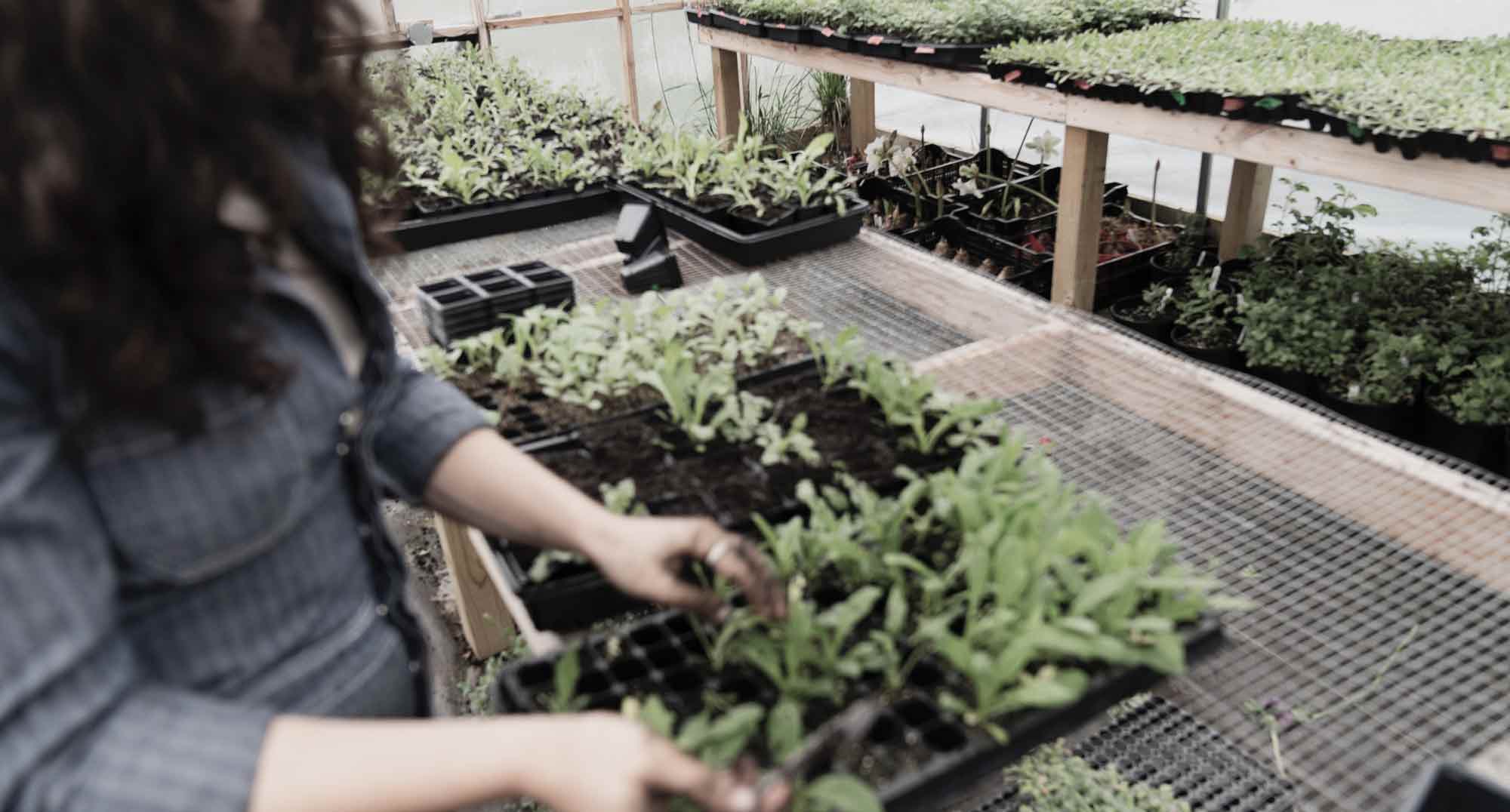TARA GIBBS | CONTRIBUTOR
Work, what is it good for? Dolly Parton sings of the drudgery in “9-5.” “Tumble out of bed, and I stumble to the kitchen. Pour myself a cup of ambition, and yawn and stretch and try to come to life. Jump in the shower and the blood starts pumpin’. Out on the street, the traffic starts jumpin’ with folks like me on the job from 9 to 5.” Hoyt Axton expresses it even more succinctly in his 1974 hit Boney Fingers. “Work your fingers to the bone; what do you get? Boney Fingers. Boney Fingers!”
Henry Wordsworth Longfellow provides a noble counter-point of view in The Blacksmith,
… Toiling,—rejoicing,—sorrowing,
Onward through life he goes;
Each morning sees some task begin,
Each evening sees it close;
Something attempted, something done,
Has earned a night’s repose.
Songs about the drudgery of work and boney fingers tell my heart one story about work while Longfellow tells another. This Labor Day I cannot help but wonder, “What story does God tell me about work, and how much are my thoughts about work shaped by His story?”
God Works and God Gave Us Work
The story God tells about work begins in Genesis 1, and guess who is doing the very first work? God. Is work good? God worked. Not only that, while still in the Bible’s first chapter, we see God crafting image bearers to serve as His working ambassadors. “And God blessed them. And God said to them, ‘Be fruitful and multiply and fill the earth and subdue it, and have dominion over the fish of the sea and over the birds of the heavens and over every living thing that moves on the earth,” (Gen. 1:28). God made birds and fish and animals and plants, and then He made us and charged us to take care of all He had crafted.
Genesis 2:15 goes on, “The LORD God took the man and put him in the garden of Eden to work it and keep it,” and we see God bringing every creature to the man to be named “and whatever the man called every living creature, that was its name,” (Gen. 2:19b). When you and I work as God’s image-bearing ambassadors to His creation, we are doing what He created us to do. Our work is dignifying to us, glorifying to God, and a blessing to this world. When things got all messed up in Genesis 3, and work became something we had to fight thorns and thistles to do, it did not remove the foundational goodness of work.
Work is Full of Beauty and Dignity
Let’s look what Scripture says about work post Eden. Near the center of the Scriptures, we find Proverbs, a book which helps us apply practical godly wisdom to daily life. Throughout this book we learn how to walk in the fear of the Lord in the day-to-day. Finally, as Proverbs reaches its triumphant culmination in chapter 31, what do we see? Work! Proverbs 31 shows us the beauty of a woman whose work flows from her relationship with the Lord. “She rises while it is yet night and provides food for her household and portions for her maidens. She considers a field and buys it; with the fruit of her hands she plants a vineyard. She dresses herself with strength and makes her arms strong… Give her of the fruit of her hands, and let her works praise her in the gates,” (Prov. 31:15-17, 31). The woman’s faithful, God-honoring work brings praise to her, her household, and the name of the Lord. Thinking of the satisfaction a woman like this would feel in her work makes me think of the words of Olympic Runner and missionary Eric Lidell, “I feel God’s pleasure when I run.” I have to imagine this woman feels God’s pleasure as she works.
Where else do we see the goodness of work after Genesis 3? In Jesus. Before Jesus began His ministry at age 30, He worked as a carpenter in His family business (Mark 6:2-3). Those years were not a pointless holding pattern until Jesus could get to His real work. Not one second of Jesus’ life was wasted. I can’t help but think Jesus felt God’s pleasure as He used strong and skillful hands to craft stone or wood into something to bring service and joy to a family in Nazareth.
Work as Worship
Do we ever think of our work as a kind of doxology—praising God as we bring His goodness to this earth through work? Luther liked to describe us as the “fingers of God.” It is the Lord who feeds us, heals our bodies, and sustains each breath, but God does this through farmers and cooks and doctors and nurses. God uses sanitation workers to keep us safe from deadly germs that spring from untended refuse. As we set a broken bone, clean a kitchen floor, or change a dirty diaper, do we feel the goodness and privilege of being used as “the fingers” of God?
The Frustration of Work
But wait, what about the drudgery and frustration of work? Sometimes we work our fingers to the bone and feel our only reward is boney fingers. Dolly Parton sings of injustice in the workplace: “It’s a rich man’s game, no matter what they call it. You spend your life putting money in their wallets!”
It there any hope for the days we find ourselves with unjust bosses, a surprise layoff notice, or a “permanently closed” sign to hang in the window of our business?
Putting work into God’s bigger story helps us here.
Work is never wasted.
Sometimes our hard work seems all in vain. What about when I clean house all day only to turn around and find every toy has been pulled back out and a new Sharpie masterpiece adorns my living room wall? Sometimes this is because of what God wants to do in us, sometimes it’s because of what God wants to do through us, and most often it is both. We may not be able to see it now, but God is writing a bigger story.
Tim Keller often referenced the short story Leaf by Niggle when teaching Christians to envision the bigger story of work. Niggle was an artist who had a vision of the most beautiful tree. But despite days, weeks, and months of labor, he could never get more than one meticulously-crafted leaf to appear on his canvas. Even more frustrating was the fact that as he labored against the ticking clock of his upcoming end-of-life journey, he often found his efforts interrupted by a neighbor’s frivolous demands.
At the end of the story, Niggle goes on his journey to a heaven-like place. He disembarks from the train and climbs a green hill to find what?
Before him stood the Tree, his Tree, finished. If you could say that of a Tree that was alive, its leaves opening, its branches growing and bending in the wind that Niggle had so often felt or guessed, and had so often failed to catch. He gazed at the Tree, and slowly he lifted his arms and opened them wide. 1
Pause for a moment and picture yourself at that beautiful heavenly tree with arms opened wide.
Keller assures us, “Whatever your work, you need to know this: There really is a tree. Whatever you are seeking in your work—the city of justice and peace, the world of brilliance and beauty, the story, the order, the healing—it is there.”2 What are you pursuing as you work? Can you believe that God is creating something infinitely beautiful from your efforts even if you can’t fully see it now?
Sometimes work can feel pointless—like we can only get out one little leaf that no one sees and about which no one cares. God assures us, our work is never pointless. There is a tree, and one day we will see its full, glorious, unimaginable beauty. God is redeeming and reconciling this world and He graciously—astonishingly—allows us to be His fingers in that work.
Whether you are the CEO of an international corporation, a full-time mom, a doctor, a carpenter, or whatever else—whether you presently see great fruit from your labors or feel they never accomplish much, the one thing you and I can know for sure is, God is at work in our work for something more gloriously beautiful and good than we could ever imagine.
Happy Labor Day, friends! How glorious it is to have a day to celebrate God’s gift of work! If you would like to learn more about a biblical-work worldview fleshed out in the lives of faithful Christian workers, I encourage you to check out “Working with Dan Doriani”, a podcast about this topic! Find it here. This Labor Day, may you know God’s pleasure in your work and may He give you a little glimpse of the redemption He is working through your labors today.
1 https://wp.lps.org/mpayant/files/2010/08/LEAF-BY-NIGGLE.pdf
OR Tolkien, J.R.R., Leaf By Niggle, Harper Collins Paperback, 2016
2 Keller, Tim, Every Good Endeavor, Penguin, 2016 p.30
Photo by Zoe Schaeffer on Unsplash

Tara Gibbs
Tara Gibbs is a wife, mother, and writer. She spent 19 years in San Antonio, Texas ministering alongside her husband Tom to the city of San Antonio at Redeemer Presbyterian Church. Tara has authored Bible studies and taught internationally on women’s ministry. Tara and Tom recently moved to St. Louis, Missouri to serve Covenant Theological Seminary where Tom currently serves as president. Tara has parented four children, led Bible studies, practiced hospitality, worked with the San Antonio area public schools, worked in water conservation, and served as Director of Redeemer’s women’s ministry. Tara loves running, reading, everything outdoors, Tex-Mex food, and fall in St. Louis.

